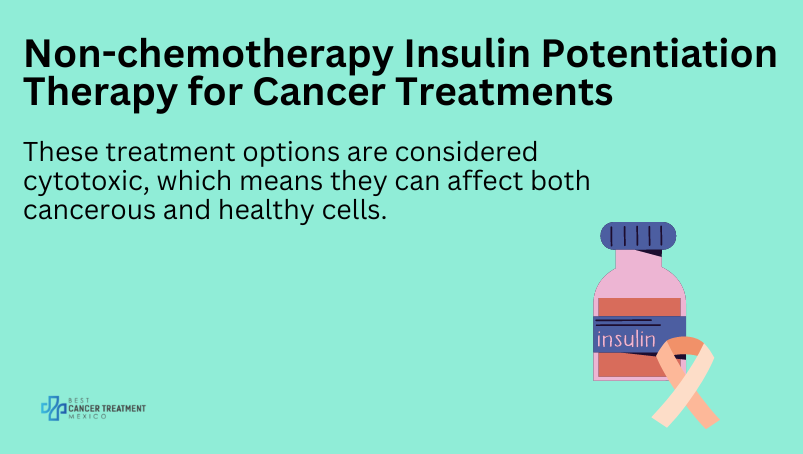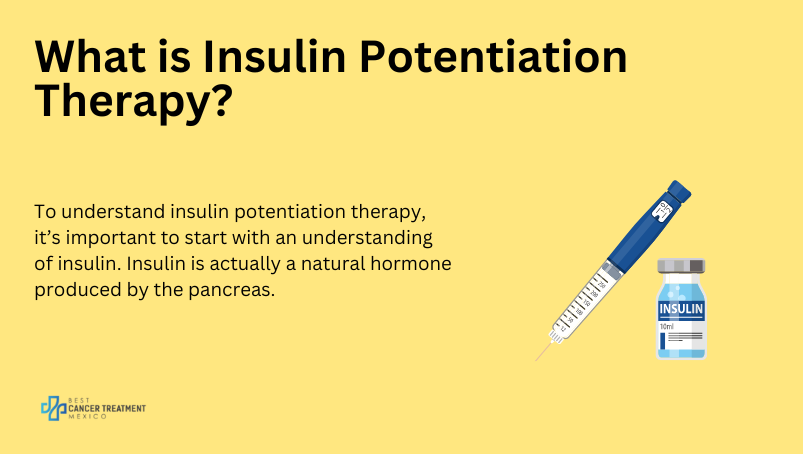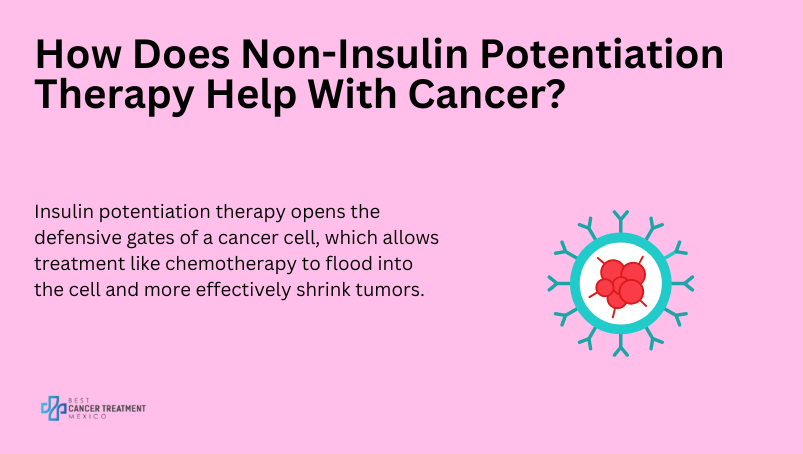
New cancer treatments continue to emerge everyday. While options like chemotherapy and radiation treatment have long been the hallmark of cancer treatment (and, in many cases, the first-line treatment for many cancers) they do not always deliver the results patients are looking for. On top of that, these treatment options are considered cytotoxic, which means they can affect both cancerous and healthy cells, causing a range of side effects.
To make cancer treatments more effective with fewer side effects, researchers continue to explore several options, including ways to use the body’s own mechanisms against cancer. Enter non-chemotherapy insulin potentiation therapy, which could be an option that doesn’t require the use of chemotherapy. Keep reading to learn more.
What is insulin potentiation therapy?

To understand insulin potentiation therapy, it’s important to start with an understanding of insulin, including what it is and why it’s a target in a cancer treatment. At first glance, it may seem like an odd focus for a cancer treatment—after all, insulin is more often associated with conditions like diabetes, right?
Yes, but insulin also plays a number of important roles in the body that can help us understand its role in cancer treatment.
Insulin is actually a natural hormone produced by the pancreas. One of its primary goals is to help the body process food that you eat so it can provide the body with energy. When food gets broken down into glucose and enters the blood stream, insulin is release to help take this glucose and bring it to cells for use as an energy source. In some cases, however, the body doesn’t produce enough insulin on its own (i.e., diabetes) or there is more glucose than insulin can handle, which causes glucose to build up in the body and cause damage to tissue and cells.
The key here? Insulin helps glucose get into cells, which some experts, including the creator of insulin potentiation therapy, could weaken cancer cell defenses and enable more effective treatment of cancer.
Because cancer cells eat everything in their path (in fact, they out consume healthy cells, leaving many health cells in an environment devoid of nutrients, causing healthy cells to die), insulin potentiation therapy use. Cancer cells have numerous receptors on their surfaces specifically designed to detect and respond to insulin carrying glucose to the cell.
The theory behind insulin potentiation therapy is that administering insulin could dramatically reduce blood sugar levels, leaving cancer cells starved for the glucose they are so used to consuming. They open their receptors, looking for glucose. Once the receptors are wide open, clinicians can administer small doses of chemotherapy (a fraction of a standard dose) directly to cancer cells.
What role does Insulin potentiation therapy play in our health?
Insulin potentiation therapy, while not a commonplace medical treatment for anything other than cancer, can play a role in our health by manipulating metabolic processes to target and fight cancer.
How does non-insulin potentiation therapy help with cancer?

Traditionally, insulin potentiation therapy opens the defensive gates of a cancer cell, which allows treatment like chemotherapy to flood into the cell and more effectively shrink tumors. But, as this article suggests, the focus is on insulin potentiation therapy sans chemotherapy. So how does that work?
The idea is that opening insulin receptors can still allow other types of drugs and medications that could treat cancer to enter cancer cells.
Is insulin potentiation therapy an effective treatment for cancer?
Insulin potentiation therapy is a generally unproven approach to cancer treatment, though it has had some favorable outcomes in studies examining the treatment for cancers like prostate cancer, for example.
Is insulin potentiation therapy a safe treatment for cancer?
While you should receive insulin potentiation therapy under the supervision of a trained medical professional, there are still some risks. For example, patients often have to fast for six to eight hours before treatment, and then receive a dose of insulin. This causes a dramatic drop in blood sugar levels, which can be potentially dangerous. For example, low blood sugar can lead to diabetic shock or seizures.
With any type of cancer treatment, it’s important to make sure you fully understand the available treatment options and choose options that work for you. This should include talking to your doctor before starting any cancer treatment. They can help you decide which treatment options are right for you.
